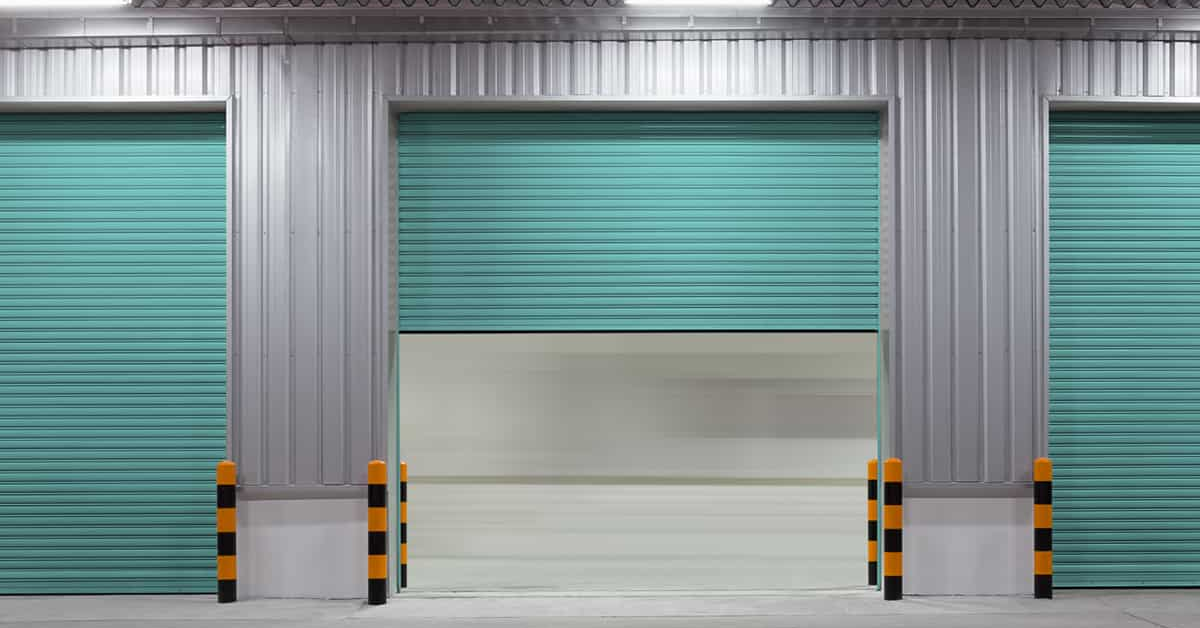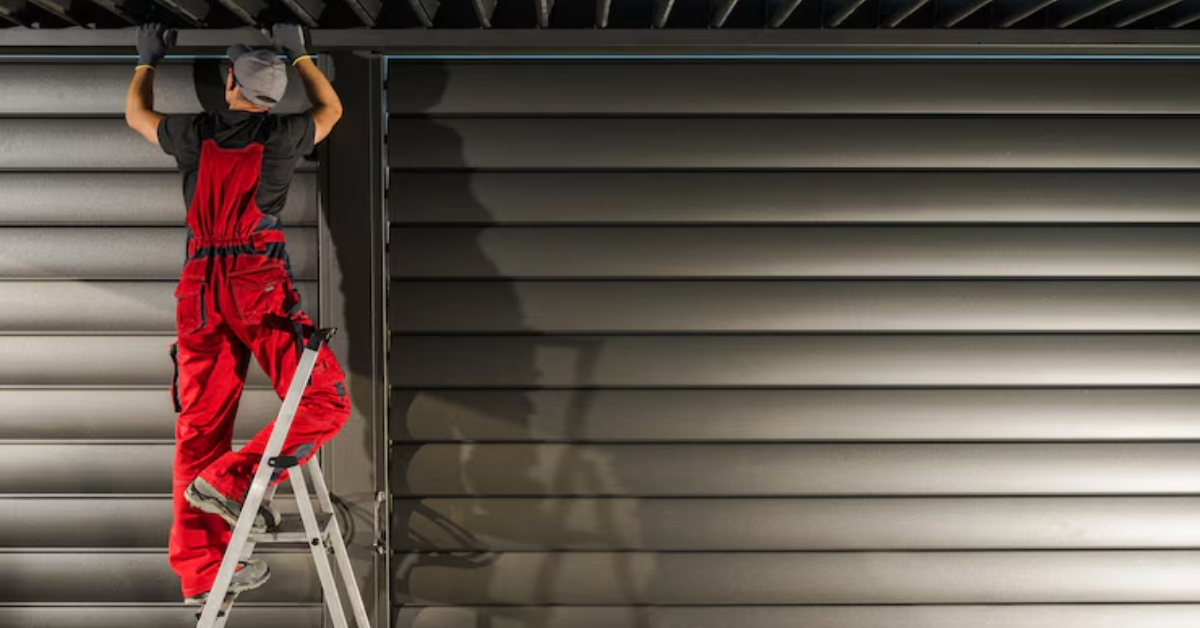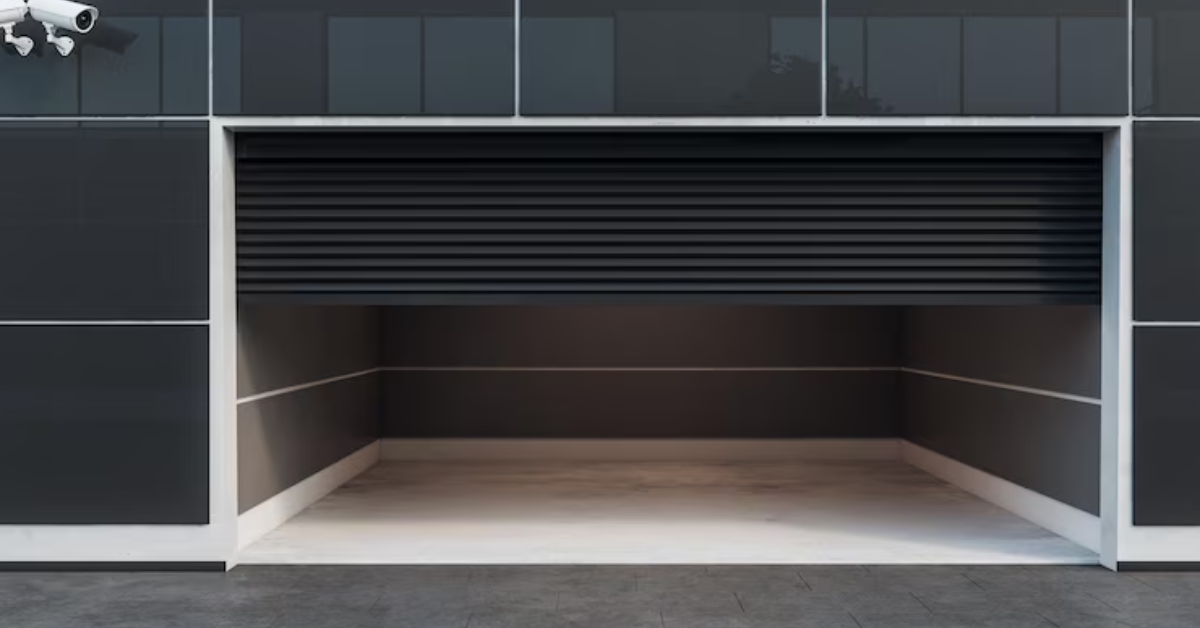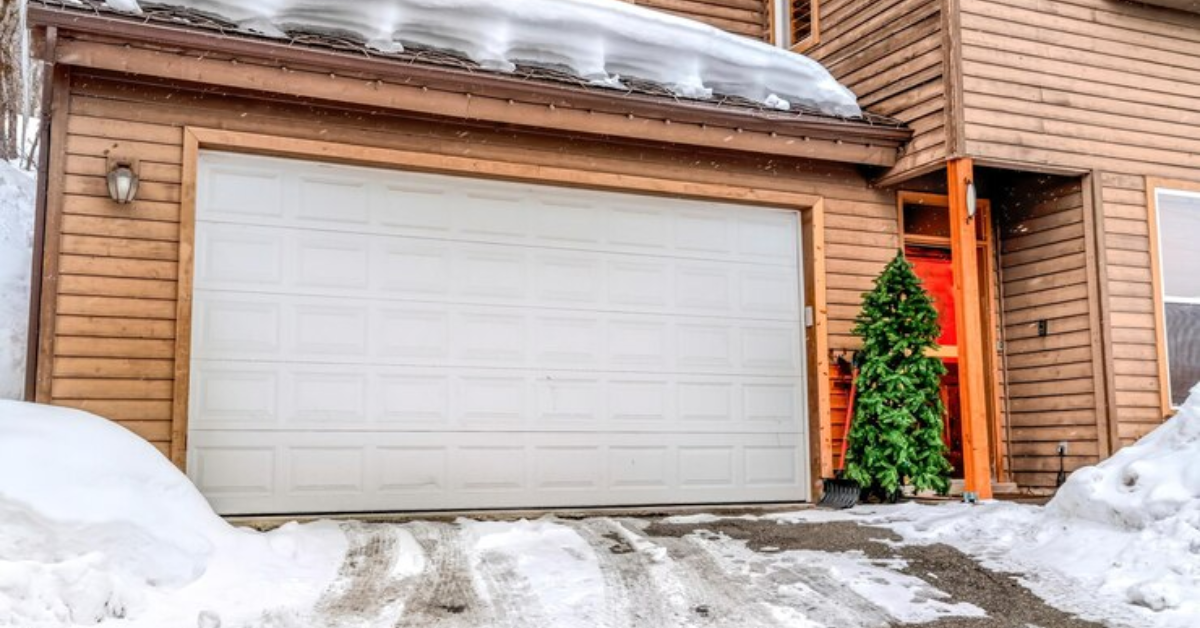Common Mistakes to Avoid in DIY Commercial Garage Door Repairs
Commercial property owners often find the appeal of do-it-yourself (DIY) projects irresistible, seeking to save costs and engage in hands-on maintenance. One area where this allure can lead to unintended consequences is in the realm of commercial garage door repairs. While the prospect of tackling issues independently may seem enticing, it's crucial to navigate this territory with caution. This introduction aims to shed light on the dual nature of DIY commercial garage door repairs – the initial appeal and the potential pitfalls. As we explore the reasons behind the attraction of DIY solutions, we'll simultaneously emphasize the critical importance of steering clear of common mistakes that can arise during these repair endeavors. Understanding the delicate balance between self-reliance and professional expertise is key to maintaining the functionality and safety of commercial garage doors.
Lack of Proper Diagnosis
One of the prevalent mistakes in DIY commercial garage door repairs is the tendency to skip or hastily conduct inspections. The allure of quick fixes often leads individuals to overlook the crucial step of a thorough diagnosis. Commercial garage doors are intricate systems with various components, and overlooking potential issues during an inspection can result in incomplete repairs and recurring problems. Skipping this initial step can be akin to treating symptoms without addressing the root cause. A comprehensive inspection should encompass the entire garage door system, from the tracks and rollers to the cables and springs, ensuring that no underlying issues are left undetected.
Misidentifying Garage Door Issues
A common pitfall in DIY repairs is the misidentification of garage door issues. Lack of expertise may lead individuals to misinterpret symptoms, treating a secondary problem while neglecting the primary cause. For example, a noisy garage door might be incorrectly attributed to a lubrication issue when, in reality, it could indicate a misaligned track or worn-out rollers. Misdiagnosis not only results in ineffective repairs but may exacerbate the problem, leading to additional damage. Understanding the nuanced signs of garage door malfunctions and accurately identifying the root cause is essential to implementing targeted and successful DIY repairs. In this context, education and research play pivotal roles in empowering individuals to make informed diagnoses and execute precise solutions.
Importance of Safety Precautions
Underestimating safety risks is a grave oversight in DIY commercial garage door repairs, considering the inherently heavy and complex nature of these systems. The importance of adhering to stringent safety precautions cannot be overstated. Safety measures should include wearing protective gear, ensuring a well-lit workspace, and, most importantly, disconnecting the power source to the garage door opener to prevent accidental activation. Implementing these precautions not only safeguards the individual performing the repairs but also reduces the likelihood of accidents that could lead to severe injuries or property damage.
Risks Associated with DIY Repairs
Engaging in DIY commercial garage door repairs without a full appreciation of the associated risks poses significant dangers. Mishandling heavy garage door components, such as springs or cables, can result in serious injuries. Additionally, misjudging the tension in these components may lead to unpredictable movements of the door, putting both the repairer and bystanders at risk. Lack of familiarity with the specific safety protocols and techniques required for certain repairs may exacerbate existing issues or create new problems. Understanding the potential risks and acknowledging the necessity of safety precautions is paramount to fostering a secure environment when undertaking DIY commercial garage door repairs. Prioritizing safety not only protects individuals but also contributes to the successful and incident-free completion of repairs.
Inadequate Tools and Equipment
One of the cardinal sins in DIY commercial garage door repairs is embarking on the task without the necessary tools and equipment. The importance of using proper tools cannot be overstated as they play a pivotal role in the precision and safety of the repair process. Commercial garage doors are intricate systems with specific requirements, and using the correct tools ensures that repairs are conducted efficiently and with minimal risk. From wrenches and pliers to specialized tools for tensioning springs, having a comprehensive set of tools is crucial for addressing a wide range of issues effectively.
A frequent mistake in DIY commercial garage door repairs is the misuse or neglect of essential tools. Using inappropriate tools or makeshift solutions can lead to subpar repairs and, in some cases, cause further damage. For example, attempting to use a generic tool for a specialized garage door component may strip screws, damage parts, or compromise the integrity of the repair. Overlooking the need for specific tools may result in frustration, extended repair times, and a higher likelihood of errors. Acknowledging the importance of investing in, and properly using, the right tools for the job is a fundamental aspect of successful DIY garage door repairs. It not only enhances the effectiveness of the repair process but also contributes to the long-term functionality of the garage door system.
Misinterpreting Garage Door Mechanisms
A critical aspect of effective DIY commercial garage door repairs lies in a comprehensive understanding of the garage door's intricate mechanisms. Before attempting any repairs, individuals should familiarize themselves with the various components, such as springs, cables, tracks, and rollers. Understanding how these elements work together enables more accurate diagnostics and targeted solutions. Misinterpreting garage door mechanisms often stems from a lack of knowledge about how these components interact. By investing time in learning the fundamental principles, DIY enthusiasts can navigate repairs with confidence, reducing the risk of errors and enhancing the likelihood of successful outcomes.
To avoid costly mistakes in DIY commercial garage door repairs, it is crucial to steer clear of misinterpretations of garage door mechanisms. A common error is assuming that symptoms indicate a straightforward issue without considering the interconnected nature of the system. For example, a seemingly minor misalignment might be a symptom of a more complex problem within the garage door's overall structure. Avoiding misinterpretations involves a careful and systematic approach to troubleshooting, ensuring that repairs address the root cause rather than just the surface symptoms. By prioritizing accurate assessments, DIY enthusiasts can elevate the quality of their repairs and contribute to the long-term functionality of the commercial garage door.
Ignoring Manufacturer Guidelines
A prevalent mistake in DIY commercial garage door repairs is disregarding the manufacturer's guidelines and recommendations. Manufacturers provide specific instructions for installation, maintenance, and repairs to ensure optimal performance and safety. Ignoring these guidelines jeopardizes the integrity of the repair and may compromise the overall functionality of the garage door system. Understanding and adhering to manufacturer recommendations is fundamental to the success of any DIY repair project, promoting the longevity of the equipment and minimizing the risk of unintended consequences.
Consequences of Ignoring Manufacturer Instructions
The consequences of ignoring manufacturer instructions in commercial garage door repairs can be severe. Manufacturer guidelines are crafted based on extensive testing and engineering, addressing safety standards and optimal functioning. Ignoring these instructions may lead to suboptimal repairs, increased wear and tear, or even safety hazards. Manufacturers often provide specific details about compatible parts, recommended maintenance intervals, and proper repair techniques. Disregarding this valuable information not only undermines the effectiveness of the repair but may also void warranties and increase the likelihood of future issues. Respecting and following manufacturer guidelines is a cornerstone of responsible DIY commercial garage door repairs, ensuring both short-term success and long-term durability.
Lack of Technical Expertise
One of the critical pitfalls in DIY commercial garage door repairs is the lack of technical expertise. Recognizing the boundaries of personal knowledge is crucial for preventing costly errors. Knowing when to seek professional help is a skill in itself. If a repair involves intricate technical aspects or if uncertainties persist, it's prudent to consult a qualified technician. Attempting repairs beyond one's technical expertise may exacerbate issues and compromise the safety and functionality of the garage door. Acknowledging the limitations of individual knowledge and understanding when to call in a professional ensures a responsible and effective approach to commercial garage door repairs.
Insufficient technical knowledge poses a significant downside in DIY commercial garage door repairs. Without a comprehensive understanding of the garage door's complex mechanisms, individuals may inadvertently worsen existing problems or introduce new issues during the repair process. The lack of technical expertise may lead to misjudgments, incorrect adjustments, and a failure to identify underlying issues. In turn, this can result in more extensive and expensive repairs down the line. Recognizing the value of technical knowledge and acknowledging its absence when necessary is essential for a successful and risk-free DIY repair experience.
Poorly Executed Adjustments
Adjusting a commercial garage door is a delicate task that requires precision and a nuanced understanding of the door's mechanics. Proper adjustments involve fine-tuning components such as springs, cables, and tracks to ensure smooth operation and optimal functionality. Knowing the correct techniques for adjustments is crucial for avoiding unnecessary wear and tear and maintaining the door's balance. The art of proper adjustments lies in a meticulous approach that considers the specific requirements of the garage door system.
Poorly executed adjustments can have severe consequences for a commercial garage door. Attempting adjustments without the necessary expertise may lead to misalignments, uneven tension, and compromised structural integrity. The consequences of improper adjustments include accelerated wear on components, increased strain on the motor, and heightened safety risks. In some cases, adjustments made without a thorough understanding of the system may exacerbate existing issues or create new ones. Recognizing the significance of proper adjustments and the potential fallout from inadequate execution is paramount for maintaining the long-term functionality and safety of a commercial garage door.
Neglecting Regular Maintenance
Neglecting regular maintenance is a common oversight in the realm of DIY commercial garage door repairs. Understanding the intimate link between DIY repairs and ongoing maintenance is crucial for sustaining the health of the garage door system. Regular maintenance serves as a proactive measure, addressing potential issues before they escalate into major problems requiring extensive repairs. By intertwining DIY repairs with a consistent maintenance routine, individuals can ensure the continued reliability and longevity of their commercial garage doors.
The impact of neglecting regular maintenance on the long-term functionality of a commercial garage door cannot be overstated. Failure to address minor issues promptly can lead to a cascade of problems, affecting various components and diminishing overall performance. Neglect contributes to accelerated wear and tear, increased repair frequency, and the likelihood of sudden breakdowns. Recognizing the symbiotic relationship between regular maintenance and DIY repairs is essential for fostering a garage door system that operates seamlessly over the long term.
Overlooking Professional Consultation
Overlooking professional consultation is a mistake often made in the pursuit of DIY commercial garage door repairs. Understanding the value of expert advice is paramount, especially when facing complex issues or uncertainties. Professional consultants, like those at reputable services such as Fix N’ Go Garage Door Repair and Installation, bring a wealth of experience and knowledge. Their insights can guide DIY enthusiasts in making informed decisions, ensuring that repairs are conducted accurately and safely. Acknowledging the value of expert advice contributes to a more informed and successful approach to DIY commercial garage door repairs.
Knowing when to seek guidance from a professional is a critical aspect of responsible DIY repair endeavors. If a repair task exceeds personal expertise, involves intricate technicalities, or poses safety risks, consulting a professional becomes imperative. Ignoring the need for expert guidance may lead to suboptimal repairs, potential hazards, and increased costs in the long run. Recognizing one's limitations and seeking professional consultation when necessary is a wise strategy for maintaining the integrity of commercial garage doors and ensuring the safety of both individuals and property.
Conclusion
The journey through DIY garage door repairs underscores the significance of learning from mistakes and recognizing the pivotal importance of professional expertise. While DIY efforts allow for hands-on engagement, understanding the limits of personal knowledge and experience is essential. Each mistake becomes a valuable lesson, emphasizing the need for continual education in garage door maintenance and repairs. However, the ultimate safeguard lies in the wisdom to seek professional expertise, like Fix N’ Go Garage Door Repair and Installation. Embracing a harmonious blend of DIY enthusiasm and professional insight ensures a holistic approach to garage door care, fostering longevity, safety, and optimal functionality.




